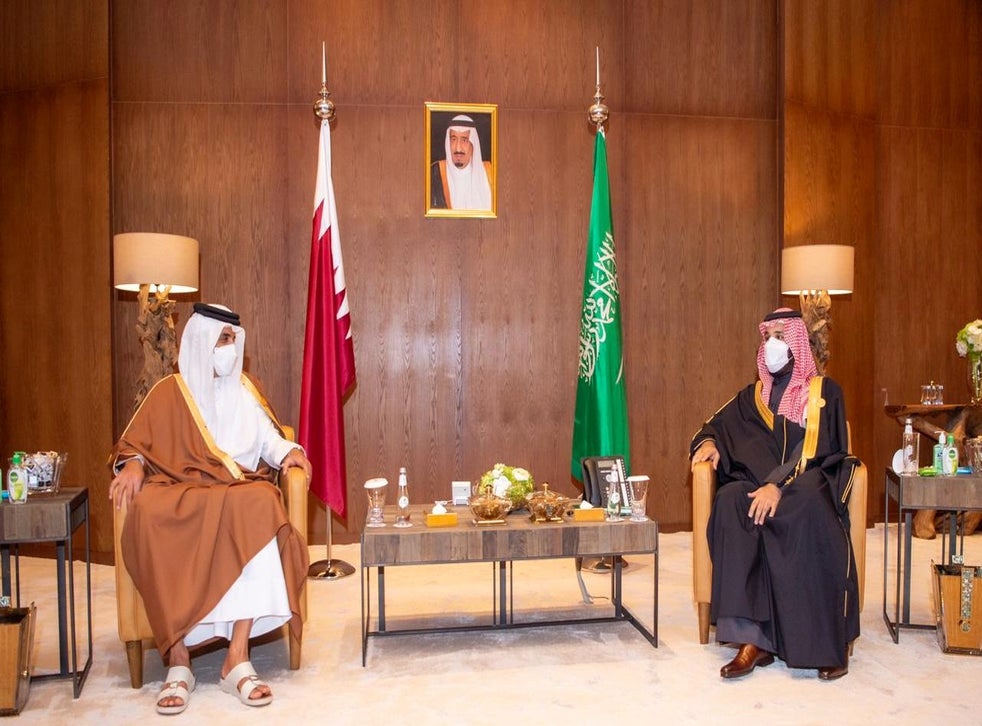Prince Mohammed on Tuesday welcomed Sheikh Tamim bin Hamad al-Thani, Qatar’s emir, to the summit with a warm hug as the Qatari leader made his first visit to the kingdom since the embargo was imposed. But analysts warned it will take time to heal the deep wounds opened by the gap. “You could say Qatar has won,” said Abdulkhaleq Abdullah, a Dubai-based professor of politics, even if the Saudi-UAE alliance will take some comfort from having shone a light on Qatar’s regional policies. “The cost of fighting was too high there is a realisation now that this is the black sheep of the family and we just have to put up with it,” he added. “These have been the worst three-and-a-half years in the history of the GCC”.

Saudi Arabia and its Arab allies have agreed to restore ties with Qatar in a significant breakthrough that is set to end more than three years of disunity and rancour within the ranks of the west’s Gulf allies. “All the outstanding issues, whether returning of diplomatic relations, flights, will go back to normal,” Prince Faisal bin Farhan, the Saudi foreign minister, told reporters. “It’s a very important breakthrough that we believe will contribute very much to the security of all our nations in the region.” He was speaking after Gulf leaders signed a declaration at a summit held in Saudi Arabia hours after Riyadh announced it was lifting its air, land and sea embargo on Qatar. The United Arab Emirates, Bahrain and Egypt are now expected to follow suit, bringing relief to the Gulf’s biggest crisis in years. It is unclear what the timeline will be. Anwar Gargash, the UAE’s minister of state, said a “good agreement” had been reached, adding that “we will see implementation quite quickly on many of the measures that were taken”. “I’m very optimistic, but of course you always know that following a rift such as one that we have had, the issue of rebuilding confidence is one that takes time, takes some energy,” Mr Gargash told CNN. “
Doha denied the claims, the dispute was deadlocked until Saudi Crown Prince Mohammed bin Salman stepped up his efforts to resolve the crisis, backed by Kuwait and US mediation, last year. The dispute had resounded across the Arab world as other states felt compelled to pick sides, and stymied the Trump administration’s efforts to build an alliance against Iran and isolate the Islamic republic. Shunned by its neighbour, Qatar, which hosts the US’s biggest military base in the region, forged closer ties with Iran. It also cemented the Gulf state’s ties with Turkey as the final accelerated the deployment of troops to a base in Doha in a muscular show of support for Qatar. After imposing the embargo in 2017, Riyadh and its allies issued a wide-ranging list of demands, including closing the Qatar-funded Al Jazeera media network, curbing relations with Iran and shutting a military base operated by Turkey.

None of these conditions have been met. Analysts said Qatar, long considered a maverick by its neighbours, was unlikely to pivot from its longstanding policies of supporting popular movements in the Islamic world, including groups linked to Muslim Brotherhood, which is banned in Saudi Arabia and the UAE. Qatar could, nonetheless, make some concessions, the analysts added, such as limiting contacts with the Brotherhood and toning down the more aggressive aspects of al Jazeera’s reporting. Al Jazeera has been critical of Saudi Arabia and UAE attempts to undermine democratic forces in the Arab world. A person briefed on the mediation process said that after Saudi Arabia lifted its air, land and sea embargo, Doha was expected to freeze state-related legal cases launched against its rivals at institutions such as the World Trade Organization and the International Civil Aviation Organization. Qatar was forced to repatriate more than $20bn from overseas deposits to shore up its financial system


